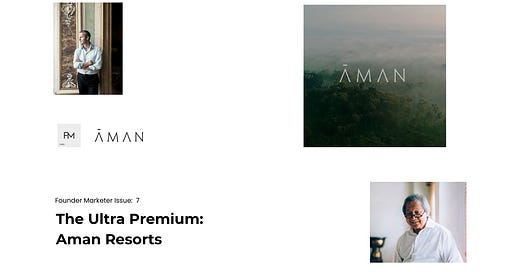In partnership with

Hire overseas talent with U.S. caliber resumes
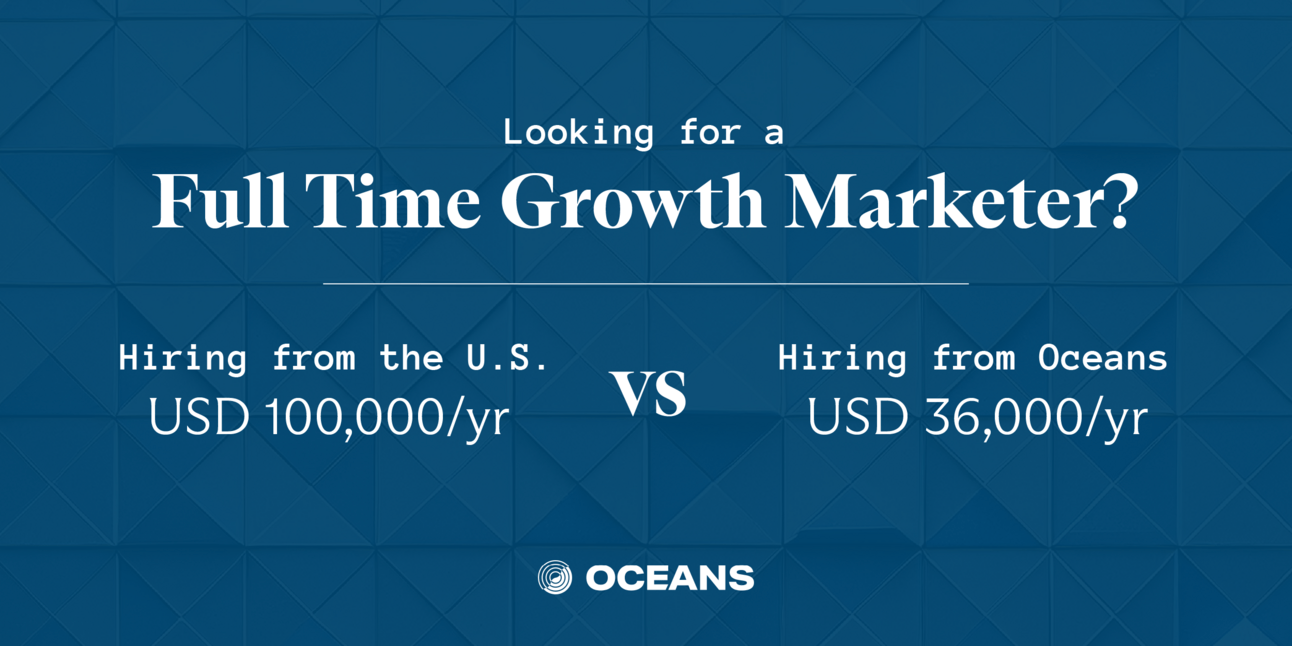
Use Oceans to hire a full-time marketer and save over $50,000 a year.
Our Growth Marketers have scaled millions of ad spend for other U.S. based companies, and can help you:
✔ Drive user acquisition and engagement through data-backed strategies
✔ Optimize digital campaigns to maximize ROI
✔ Leverage the latest tools and trends to scale your business
At Oceans, we offer experienced Growth Marketers for just $36,000 a year.
How Aman Created the Ultra-Premium Hotel Category: The Intimate Luxury Framework
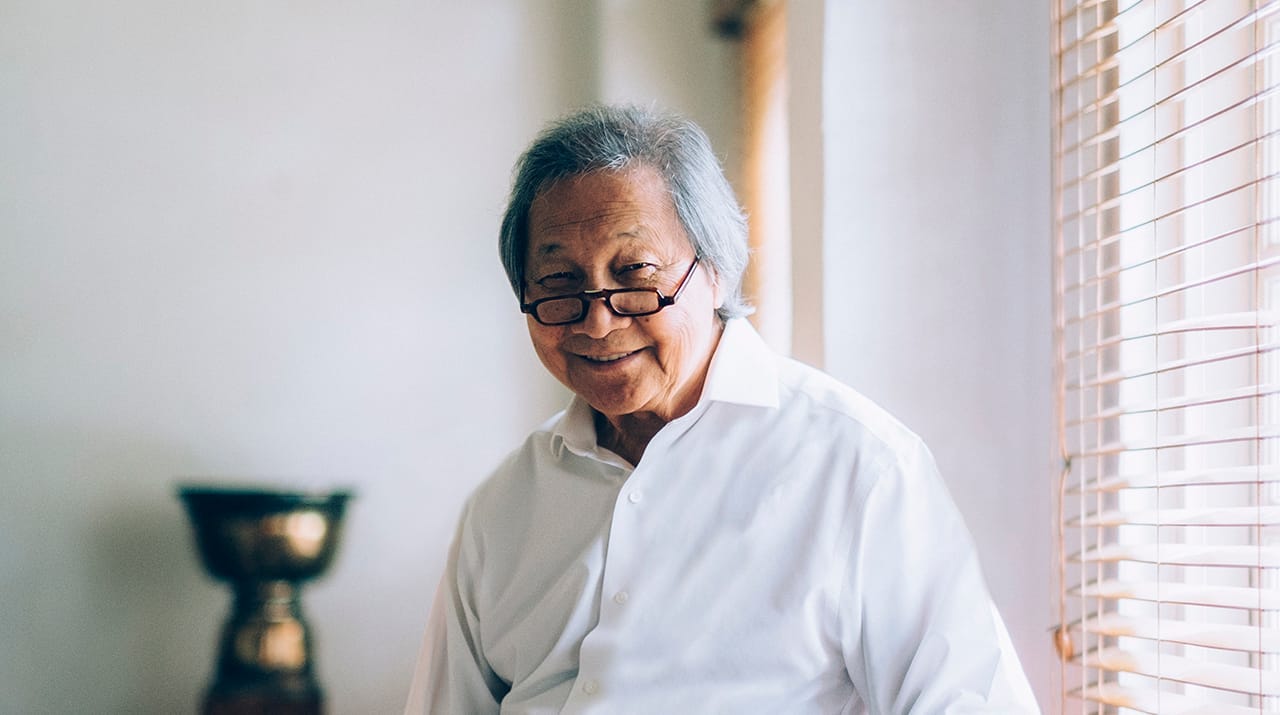
Adrian Zecha, Founder of Aman Resorts
In 1988, when Adrian Zecha started looking for land in Phuket to build a holiday home, banks thought his eventual business plan was insane. He wanted to build a resort with just 40 rooms, charging five times the rates of local luxury hotels.
Traditional hotels operated on scale - 400+ rooms were standard, allowing them to spread costs and maximize efficiency. Zecha proposed the opposite: extreme limitation as a luxury strategy.
No bank would fund the project, and the numbers didn't make sense on paper. So Zecha and three friends invested their own money to build what would become Amanpuri, the first Aman resort. Their bet? That true luxury wasn't about scale but intimacy.
This wasn't just another hotel launch. It was the creation of an entirely new category in hospitality - one that would transform how the world thinks about luxury travel.
The Market Context
In the 1980s, luxury hospitality followed a clear formula:
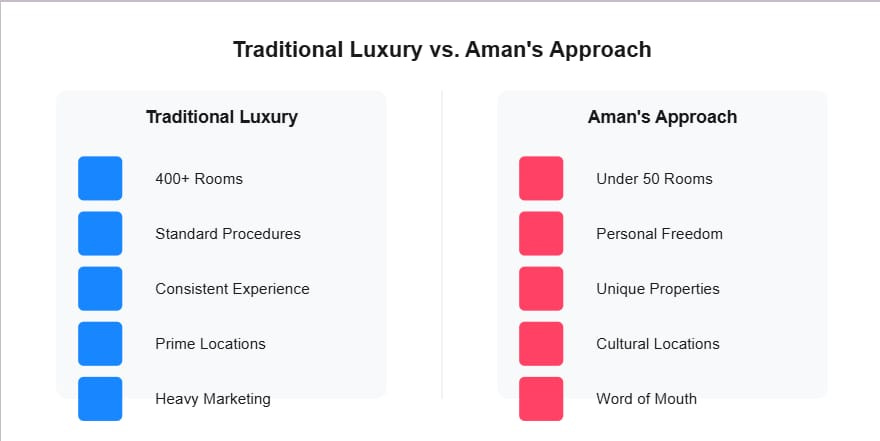
The industry's focus was efficiency at scale. Even five-star hotels operated on the principle that more rooms meant more profit. Service was professional but standardized. Luxury meant marble lobbies and white-glove service, not cultural immersion or personal connection.
The Premium Insight
Zecha's vision for Aman came from a fundamental insight about luxury: as the world became more efficient, standardized, and connected, true luxury would mean the opposite - intimate, personal, and distinct.
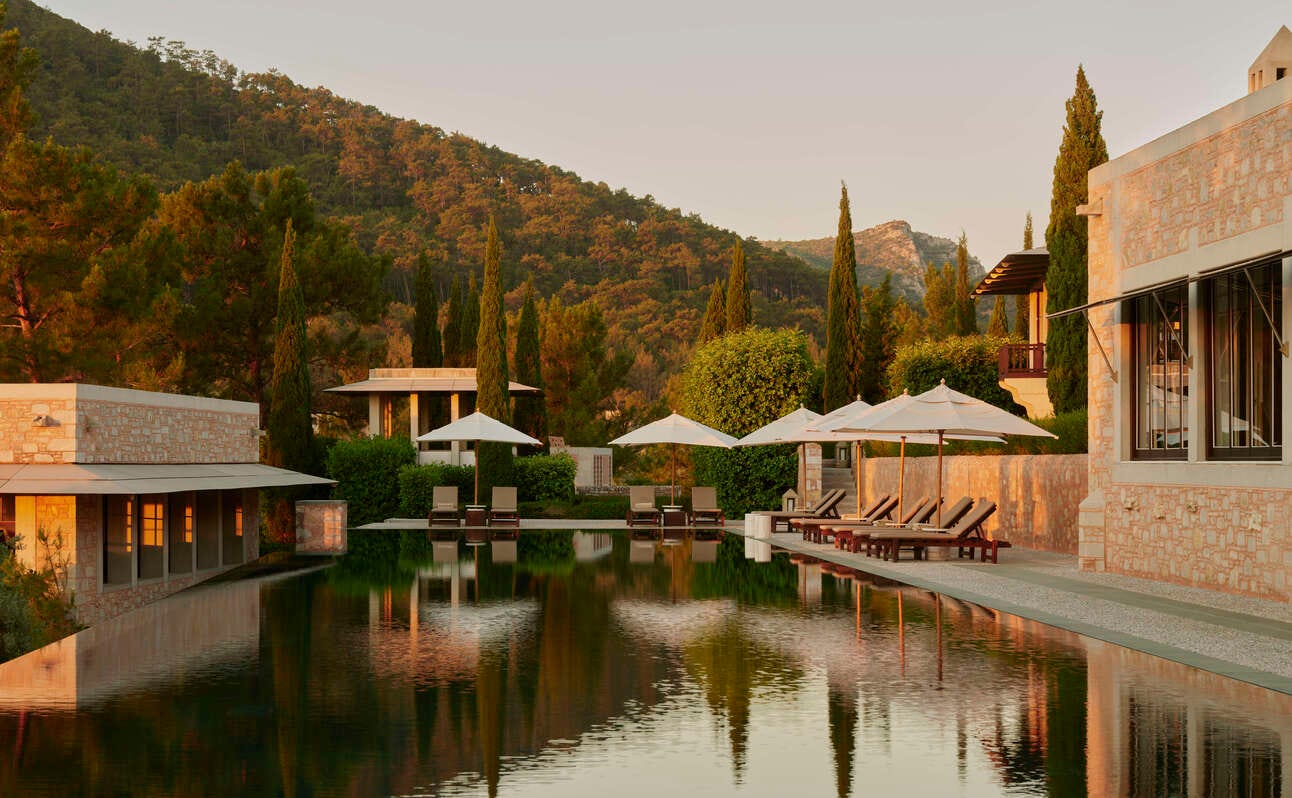
Amanruya, Bodrum, Turkey
This insight manifested in three key principles:
Intimacy Over Scale: While other luxury hotels competed to add more rooms, Aman limited each property to under 50 rooms. This wasn't just about exclusivity - it was about creating an atmosphere where every guest could feel like they were staying in a private home rather than a hotel.
Personal Over Professional: Instead of standardized service procedures, Aman gave staff the freedom to be creative and personal in their interactions. They hired for attitude over hospitality experience, believing that genuine care couldn't be taught through manuals.
Culture Over Convenience: Rather than prime city centers or tourist hubs, Aman chose locations for their cultural and historical significance. In Cambodia, they restored a guest villa once built by King Sihanouk. In Venice, they occupied the 16th-century Palazzo Papadopoli. Each property became not just a hotel, but a deep immersion into local culture.
This wasn't just a business strategy - it was a complete reimagining of what luxury could mean in the modern age. As Zecha noted, "There are enough hotels in the world. What we need are more unique experiences."
The Strategic Framework

Aman's transformation of luxury hospitality was built on three core strategic pillars:
1. Limitation as Luxury: While counterintuitive, Aman's most powerful strategy was what they chose not to do:
Never more than 50 rooms per property
Maintain a 6:1 staff-to-guest ratio (as a hotelier, I just can say woah to this)
Select only culturally significant locations
Grow slowly and selectively
The result? Every limitation increased desire. With such few rooms, occupancy stayed high despite premium pricing. With so many staff per guest, service became legendary. With such selective locations, each property became a destination in itself.
2. Anti-Corporate Approach: Aman deliberately rejected standard hotel industry practices:
No standard operating procedures
Staff encouraged to be creative and personal
Hiring focused on attitude over experience
Managers run properties like their own businesses
As one Aman manager noted, "Without preset rules, our staff can focus on what really matters - creating unforgettable experiences for our guests."
3. Cultural Integration: Each Aman property was designed to be inseparable from its location:
Architecture reflected local heritage
Food focused on authentic local cuisine
Activities centered on cultural experiences
Deep connections with local communities
A French manager spent six months exploring the area around Aman-i-Khás in India by motorcycle before opening, discovering a forgotten 12th-century village that became part of the guest experience.
Growth Strategy
Aman's approach to growth was as unconventional as its service philosophy. Instead of rapid expansion, they focused on what they called "organic growth" - letting each property develop naturally and only expanding when the perfect opportunity arose.
The Word-of-Mouth Engine
Rather than traditional hotel marketing, Aman built desire through;
90-day preview postcards to 120,000 select recipients
Intimate pre-opening events for influential guests
Natural coverage in exclusive travel publications
Strong relationships with luxury travel advisors
Selective Expansion
Growth was guided by strict criteria;
Unique, historically significant locations
Cultural richness of the destination
Limited accessibility
Potential for authentic experiences
Building the "Aman Junkie" Culture
The brand's most powerful growth tool became its loyal customer base;
Guests returning year after year
Trying every new property regardless of location (I don’t know any other customer base that does this)
Creating an informal community of Aman devotees
Spreading the brand through personal recommendations
As Zecha noted about their expansion strategy: "We don't look for markets. We look for places that touch the soul."
This patient approach meant slower growth than traditional luxury chains, but it protected what mattered most - the intimate, exclusive experience that made Aman unique.
Key Lessons for Premium Brands
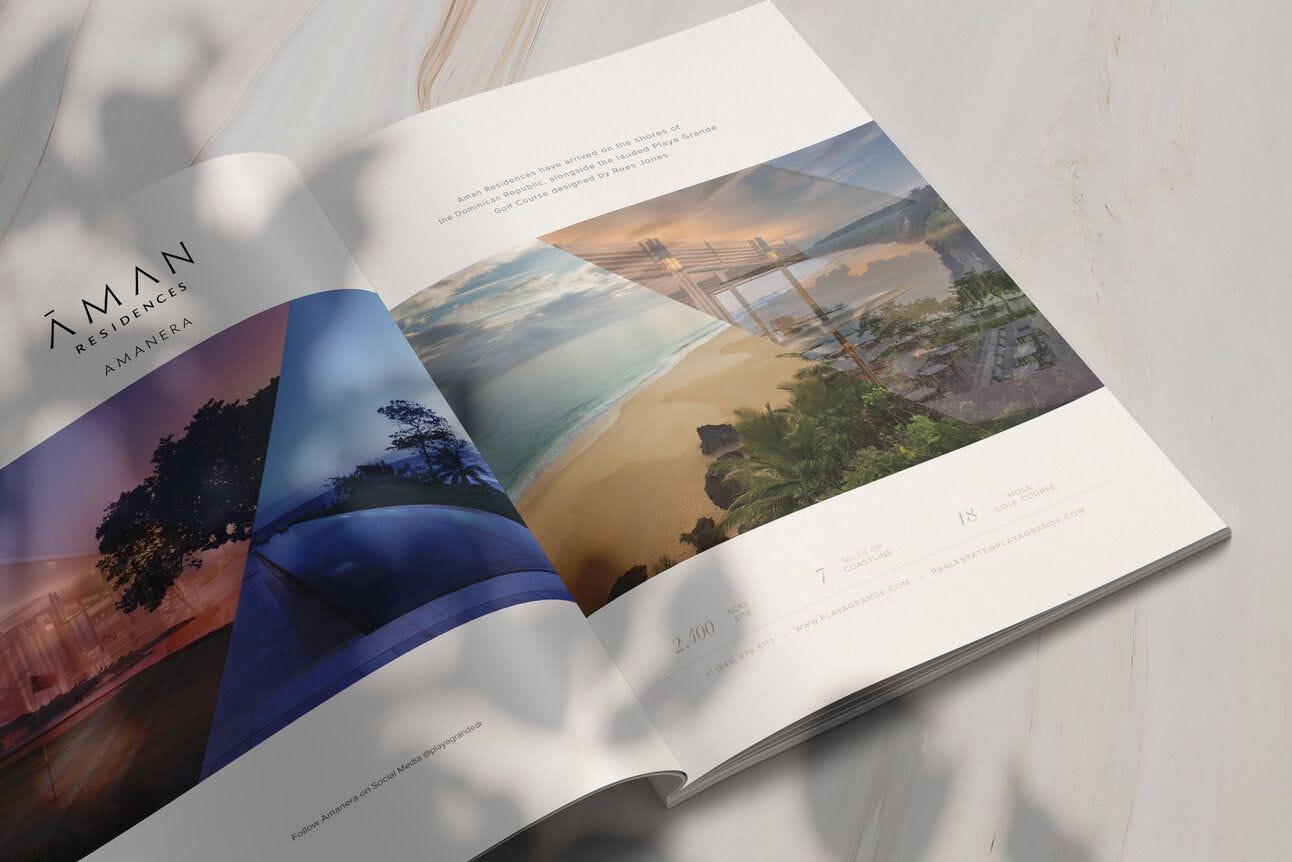
Aman's success offers clear lessons for any brand aiming to create and maintain premium positioning:
1. Scarcity Creates Value
The fundamental principle behind Aman's success wasn't luxury amenities - it was strategic limitation:
Fewer rooms meant higher demand
Limited locations increased desirability
Restricted access built mystique
Controlled growth protected quality
2. Experience Over Efficiency
Premium positioning often means rejecting industry "best practices":
Personal service over standard procedures
Cultural authenticity over convenience
Quality interactions over quantity of customers
Individual creativity over corporate efficiency
3. Location Defines Premium
Aman proved that where you are matters more than what you offer:
Cultural significance drives value
Historical connection creates story
Unique locations justify premium pricing
Authenticity beats accessibility
4. Staff as Brand Builders
The most powerful premium experiences come from people, not policies:
Hire for cultural fit over experience
Trust staff to be creative
Encourage personal ownership
Let personality shine through
Conclusion
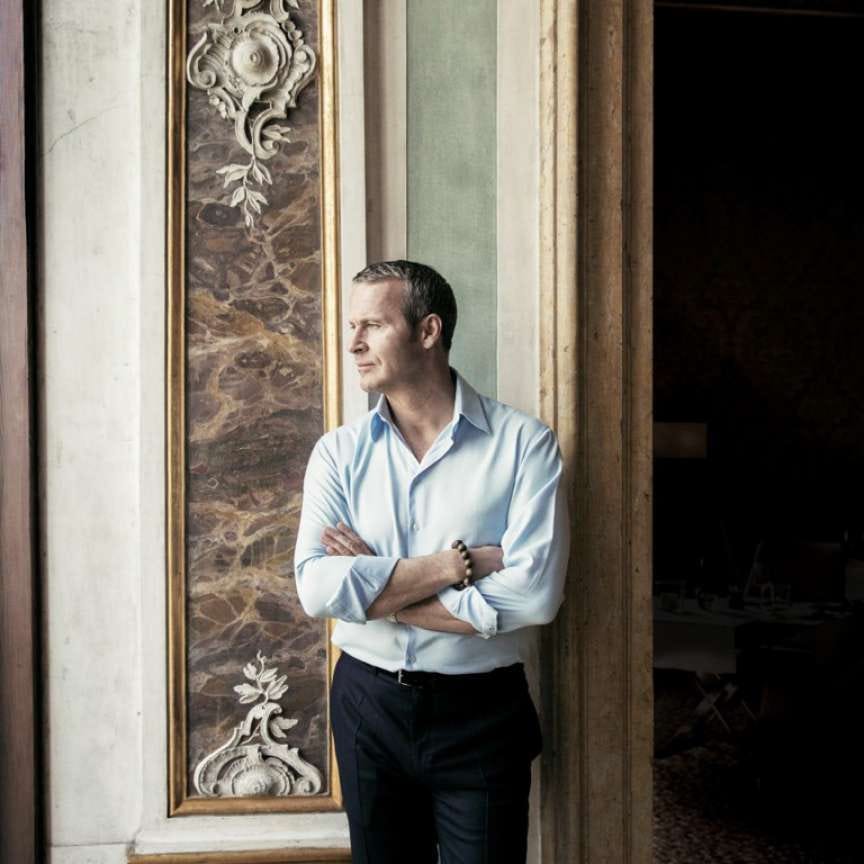
Vladislav Doronin, Current Owner and CEO of Aman
Aman's transformation of luxury hospitality isn’t just about building better hotels - it is about understanding that true premium value comes from limitation, not expansion. By focusing on intimacy over scale, experience over efficiency, and culture over convenience, they created an entirely new category of ultra-premium hospitality.
Today, as luxury becomes increasingly accessible and mass-market brands try to move upmarket, Aman's story offers a powerful lesson: In a world of more, less can be worth much more - if you're brave enough to break industry rules and patient enough to let scarcity build desire.
For founders building premium brands today, Aman's framework provides a clear roadmap: limit access, focus on experience, choose meaningful locations, and let your people build your brand. The result might not be the fastest path to growth, but it could be the surest path to premium.
Until next time,
BA
Get Your Team Booked on 3.8 Million Podcasts Automatically
It's 2025. Want to finally be a regular podcast guest in your industry? PodPitch will make it happen. Even the beehiiv team uses it!
The best way to advertise isn't Meta or Google – it's appearing on podcasts your customers love.
PodPitch.com automates thousands of weekly emails for you, pitching your team as ideal guests.
Big brands like Feastables use PodPitch.com instead of expensive PR agencies.


